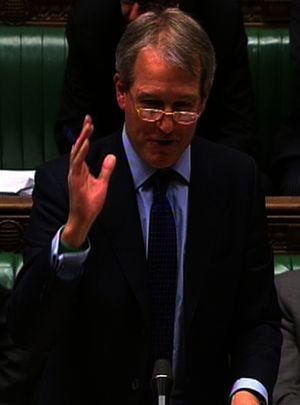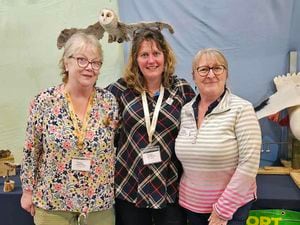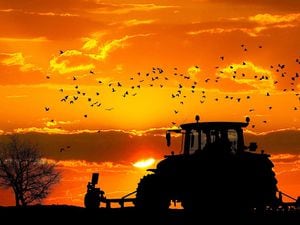Shropshire MP Owen Paterson calls for use of technology to boost productivity
North Shropshire MP Owen Paterson has reiterated his desire to see farmers embrace new technologies and methods of farming.

Mr Paterson gave examples of where people were showcasing innovation in Shropshire – at Harper Adams University near Newport and Soulton Hall near Wem – during a debate on the Agricultural Bill in the House of Commons this week.
He said the UK can learn lessons from countries like Australia and New Zealand, who moved away from food subsidies in the 1980s, and must allow producers to embrace the most advanced and most effective technologies to boost their productivity.
The Government’s long-awaited Agriculture Bill – which will grant ministers new powers to restructure farming once the UK leaves the EU – received its second reading in the House of Commons on Wednesday.
Mr Paterson said: "Where the Government can help, and there are opportunities in the bill, is on technology.
"The Secretary of State came with me to Harper Adams University and we saw a prototype machine that will go along a row of strawberries in a polytunnel, leave the brown one because it is rotten, leave the green one for tomorrow and pick the big red one for one supermarket and the little red one for another, and pack it on the machine, avoiding all contact with human hands and delivering swift, healthy food to our consumers. The university would like help to get that prototype moving, and that is the sort of area where the Government have a direct opportunity to help.
"The Secretary of State came with me to Soulton Hall and saw my young constituent Tim Ashton. He has managed to reduce costs in wheat production by 60 per cent. In north Shropshire, just outside Wem, he can look Kansas, Australia or Argentina in the eye at world prices. He will make money at world prices.
"What I would like to see is us leaving food production to farmers. I cite two countries from which we should take an example. New Zealand and Australia stopped all food subsidies.
"The other country that I would consider would be Switzerland. Do not subsidise food production – leave that to technology, to development and to individual farmers – but consider that livestock farming has an enormous environmental role.
"Very large numbers of sheep, cattle and calves are taken up to the highest Alps in the summer at vast expense – probably the most ludicrously uneconomic way to produce food in the world, but one with a massive environmental benefit, maintaining the landscape."
During the debate Michael Gove insisted a "slow hand" is better than a "rough wooing" when it comes to introducing post-Brexit plans for agriculture.
The UK is preparing to leave the EU common agricultural policy (CAP) and the system of subsidies, paid for the amount of land being farmed, will be phased out over a seven-year period between 2021 and 2027.
Farmers will instead be paid for 'public goods' such as curbing flooding, protecting and boosting wildlife and improving access to the countryside after the UK leaves the CAP, with the Agriculture Bill enabling this change.
The bill cleared the Commons without a vote at second reading and will undergo further scrutiny at a later date.
Mr Gove said the bill sets a "clear direction for the future of agriculture" and will give farmers time to make the "appropriate" changes required.





